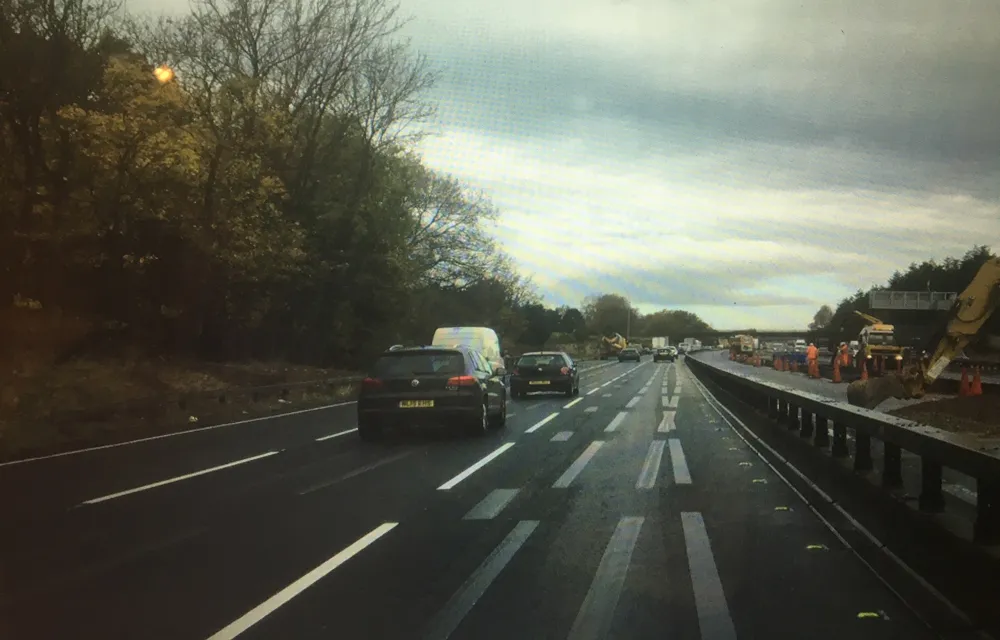
The testing is a competition to help solve the global problem of ghost markings – especially confusing for drivers in bright daylight.
Huge progress is being made in a trial on the M5 motorway in south-west England, according to the agency which is responsible for maintaining England’s major road network, including motorways.
Highways England launched a €769,000 (£685,000) international research project last year to find a solution to issues around the removal of white lines and resulting ghost markings. The current competition is also to identify the most effective road markings that will also reduce damage to the surface when the lines are removed.
As part of the project, last November, Highways England announced that it had received 36 entries from around the globe, to be whittled down to the most promising products after a laboratory-based machine system that subjected the materials to over two million "wheel-overs".
The competition, launched in conjunction with highway maintenance companies Roadcare and Kier, is being funded through Highways England’s ring-fenced Designated Fund for Innovation.
Seven new road marking products are being tested to check their skid resistance and performance in the dry and wet conditions. Also being tested are five marking removal systems to see if they are more effective than currently used systems, noted Martin Bolt, head of lean and continuous improvement at Highways England.
One approach used in the trial has been to apply a black baseline first before adding the white line. This also fills in some of the voids in the road preventing the marking penetrating too deeply into the surface. Another advantage is that it provides greater contrast between the marking and the road itself which will be increasingly important as autonomous vehicles are introduced.
The companies whose marking products are being tested are WJ Roadmarkings, MEON and 3M – all from England - as well as Geveko Markings, the Swedish company’s markings business based in Denmark, and Swarco from Germany.
Removal systems under testing are from WJ Roadmarkings, Thames Hydroblasting, based near London, traffic-lines, from Germany, and the Dutch companies of Track Line and Veluvine.
At a testing centre in the Spanish capital Madrid, the markings were subjected to some two million wheel-overs to find the top products for skid resistance and performance. The best seven were then put to the test on the northbound carriageway of the M5 motorway.
Once testing is complete, the most successful products will be highlighted in research shared around the world in an effort to set new high standards for the road industry.
“The removal solutions being tested will also reduce the scarring/pothole creation by being less intrusive to the carriageway,” said Tom Tideswell, head of innovations at Kier Highways. “This in turn improves journey reliability by reducing the amount of closures required to carry out repairs in addition to saving money.”
“The trial will continue until April but the results so far have been very promising and the safety benefits are already clear,” said Bolt. “We are very optimistic that we have identified some effective solutions to a worldwide problem. They will also prevent damage to the road surface, saving time and money. We are certainly gaining a greater insight into the materials and processes we and the road industry could be using in future schemes.”









